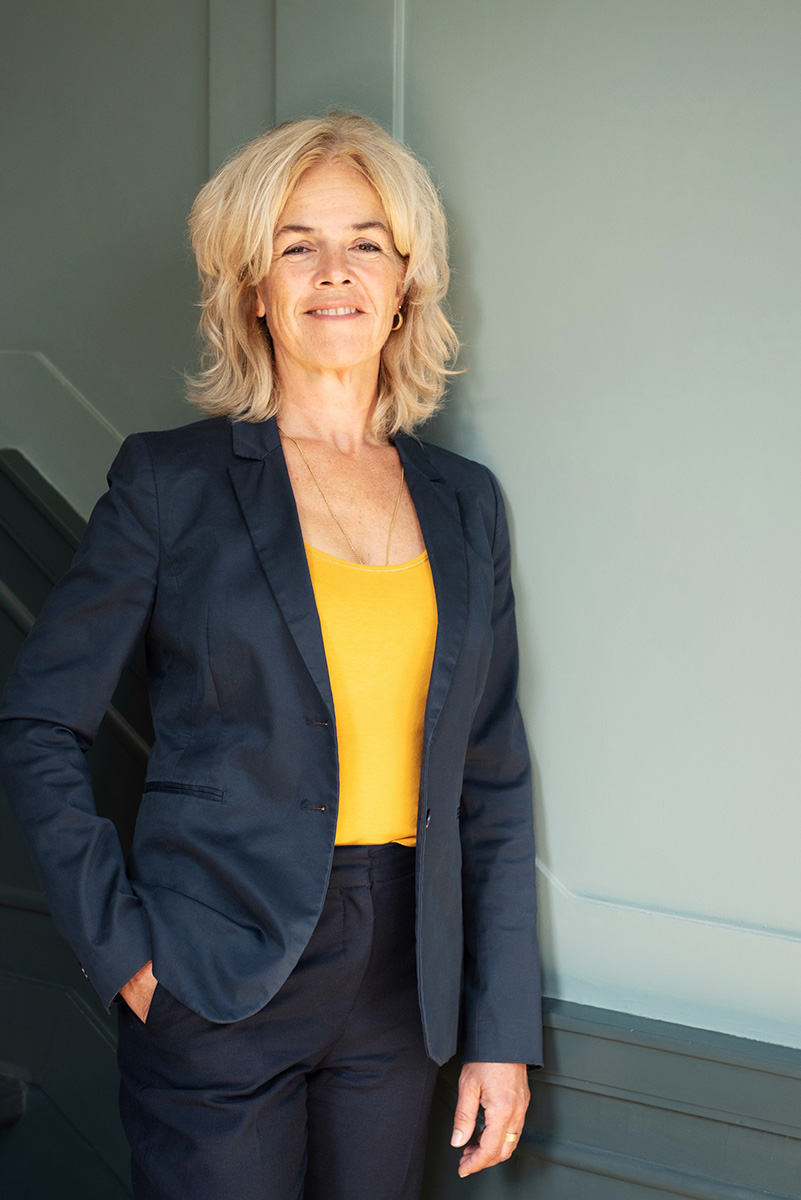“Flexpertise also requires personal renewal”
1 July 2025
Interview with Dr. Lonneke Frie, Associate Professor of Human Capital Innovation as of July 1, 2025

© Photo: Karin van Til
Starting July 1, 2025, Dr. Lonneke Frie will step into the role of the Associate Professor of Human Capital Innovation, strengthening the research group Sustainable Talent Development (part of the Centre of Expertise Global and Inclusive Learning) at The Hague University of Applied Sciences.
Lonneke recently received the Best Dissertation Award 2024 from the Dutch HRM Network for her PhD research on flexpertise: the adaptability that enables professionals to meet evolving demands for expertise. What helps some people thrive in the face of change, while others temporarily stall? And how does she approach her new role as an expert in professional reinvention? Time to get to know her better.
Lonneke, you’re stepping into a new role that requires reinvention. As a flexpertise specialist, how do you approach this?
“A logical first step for me is to explore new opportunities and the needs of our partners, so I can identify which expertise we should co-develop over the coming years. I see this role as a chance to bring a fresh perspective on how we address complex Human Capital challenges, aligned with the knowledge agenda of The Hague University of Applied Sciences. Think of sustainability transitions or technological developments - these demand that people continuously develop new expertise and learn to apply it flexibly.
What fascinates me is why some people recognize and seize renewal opportunities in time, while others don’t. How do professionals adapt their work identity when their job fundamentally changes? How do they deal effectively with discomfort or uncertainty when they’re required to reinvent themselves, even as experienced professionals? And how do we create an environment where people are both willing and able to contribute to the Human Capital challenges of the future?
In the coming period, I’ll be speaking with experts and critical thinkers from education, academia, and industry. This will also be a time of reflection and slowing down, taking a step back to reassess who I am as a professional and what I want to contribute in this new role. Like the flexperts from my research, I hope to present a sneak preview of our renewed research agenda after the summer, along with a plan to translate this into practical tools for education and organizations.”
How do you envision collaboration with other professors and the education community?
“I see myself as a connector. My work bridges academic research and my role as a business consultant in the international corporate world. This combination helps me ensure our work remains relevant and applicable in practice and vice versa: that the questions arising in business inform our research.
Within The Hague University of Applied Sciences, I’ve been part of the Sustainable Talent Development research group led by Professor Ellen Sjoer for years, and I’m eager to continue building on the knowledge we’ve created together. One inspiring project we’re currently working on is A Career of (Fl)experts at the North Sea. In this initiative, supported by the LLO-Katalysator program, we collaborate with partners from education, government, and industry to explore how we can maintain the adaptability of offshore industry experts during the energy transition. These kinds of partnerships really energize me.
I’ll also be closely involved in the new Master’s program Human Capital Innovation, which is set to launch in 2026. In this program, both students and lecturers will tackle real-world strategic challenges in organizations. It’s a great opportunity to bring practice-oriented research and education even closer together.”
What personally drives you in this field?
“My work is all about people. What drives me is contributing to the capacity of individuals and organizations to make a sustainable impact. I believe - and have seen firsthand - that people are often capable of more than they think, especially when they’re given space to discover, develop, and apply their talents.
Together with my colleague Marieke Gombault, I’m currently finalizing the Flexpertise Strategy Scan. This tool helps organizations identify how to create an ecosystem that fosters sustainable employee development. In the future, I hope to develop many more evidence-based tools like this, together with researchers, educators, and practitioners. That’s how we can truly work toward a sustainable future.”
Finally, where can people go if they want to contribute or collaborate?
“If you have ideas about Human Capital challenges that you believe deserve research, innovation, or collaboration, I’d love to hear from you. Feel free to reach out to me at: [email protected].”